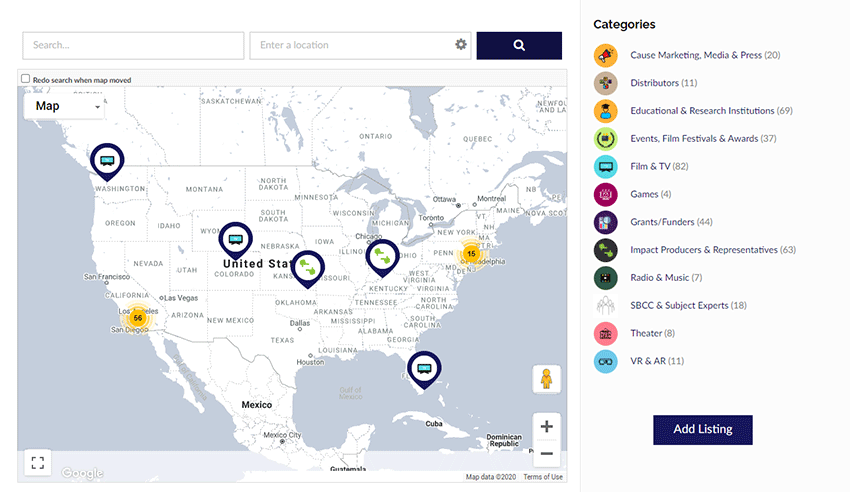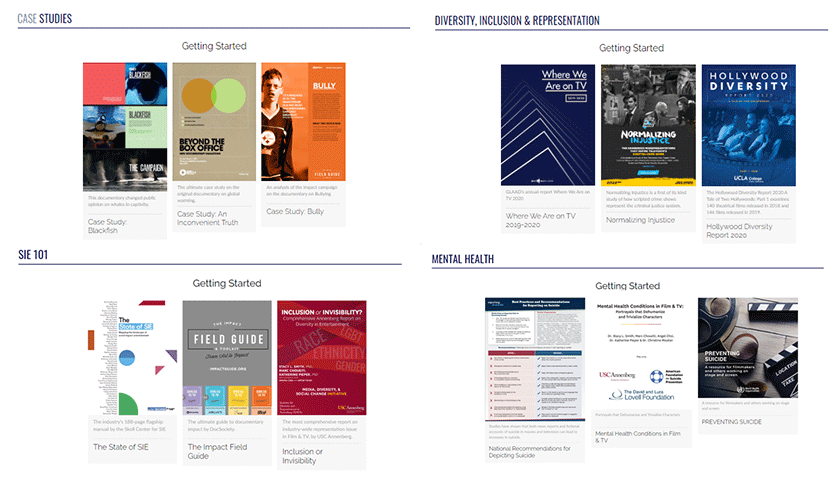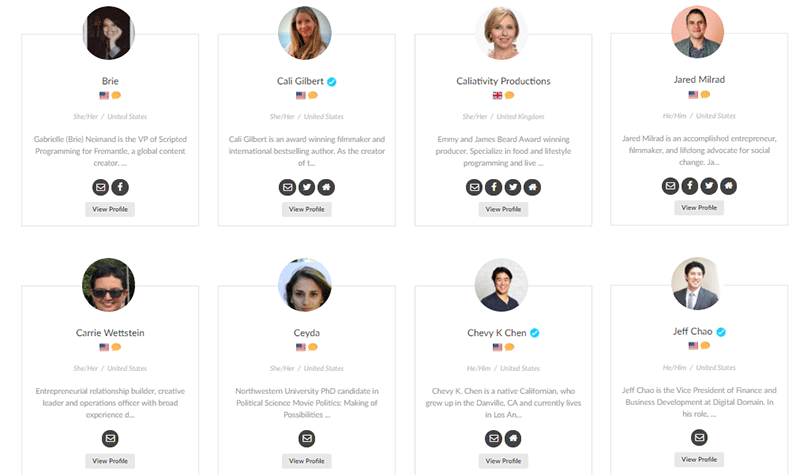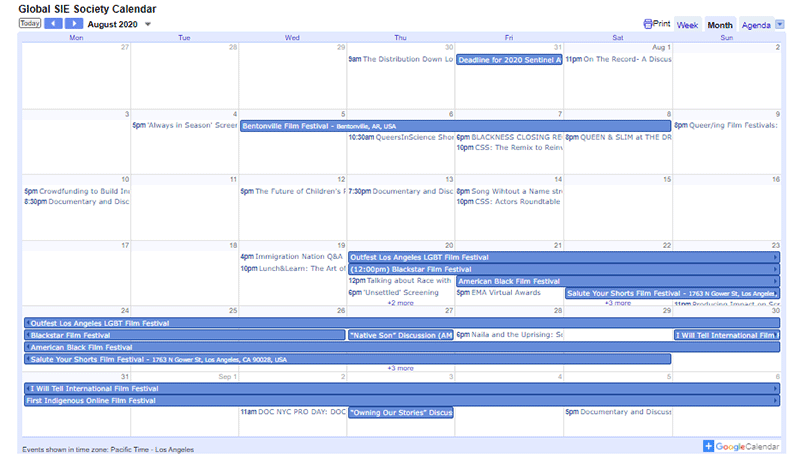Welcome to SIE Society.
We represent the fields that create entertainment with a social impact. As our membership is highly diverse, here's a guide to get started in SIE, SBCC, and CSR.
Mapping a Diverse Field
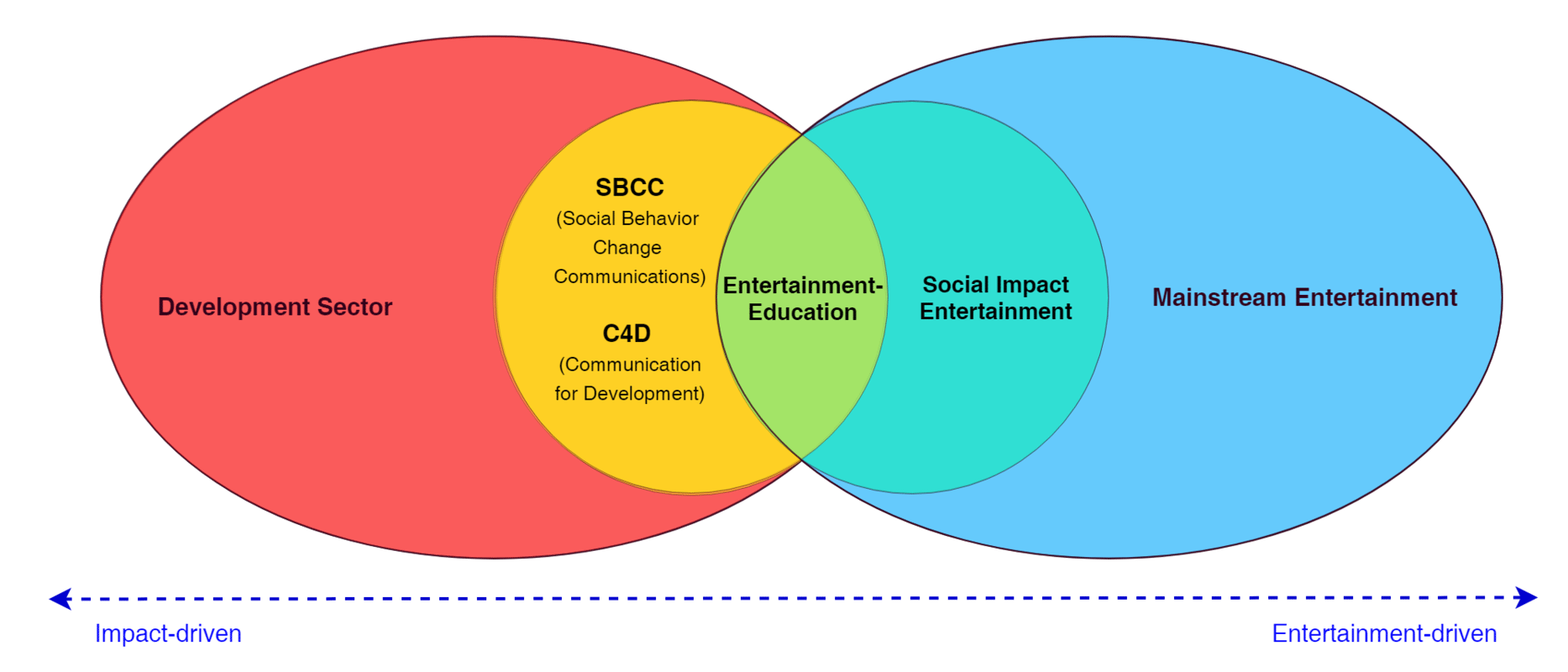
Impact-Entertainment Continuum
What are SIE, SBCC and CSR?
A common guideline are the "five key considerations":
- Focus on the story
- Know your issue
- Find the best partners
- Think about distribution differently
- Evaluate, learn and share
Explore SBCC Resources in our Library
Learn more about Entertainment-Education on Wikipedia
Learn more about CSR on Wikipedia
SIE Society Dictionary
Authentic Narratives: Authentic Narratives aim to demonstrate culturally and socially accurate characters, experiences and storylines. Successful authentic narratives can reduce discrimination and bias toward specific groups of people, enhance the understanding of different cultures, religions and points of view, and encourage a more inclusive and equitable society.
C4D: Communication for Development, UNICEF’s version of Social Behavior Change Communication (SBCC), with its own set of methodologies and standards.
Social Impact Entertainment (SIE): is all storytelling that is self-aware of its potential impact on its audiences and incorporates that knowledge to effect positive change at the individual, local, or global scale on one or more social issues.
Corporate Social Responsibility (CSR): a type of international private business self-regulation that aims to contribute to societal goals of a philanthropic, activist, or charitable nature by engaging in or supporting volunteering or ethically-oriented practices. The purpose of corporate social responsibility is to give back to the community, take part in philanthropic causes, and provide positive social value. Businesses are increasingly turning to CSR to make a difference and build a positive brand around their company.
Edutainment/Education Entertainment (EE): A type of entertainment with an educational aspect to its content or story. This includes movies, TV shows, and video games with entertaining characters who teach viewers.The goal of edutainment is to make learning enjoyable and fun.
ESG’s: The acronym stands for Environmental, Social and corporate Governance and is used primarily in the CSR community in regards to the three main measurement factors for sustainability and social impact. It is primarily tied to finance as an indicator of future performance and success.
Impact Investing: Impact investing refers to investments "made into companies, organizations, and funds with the intention to generate a measurable, beneficial social or environmental impact alongside a financial return".[1] Impact investments provide capital to address social and/or environmental issues.
Impact Producing: A type of producing for film, television and other media projects that implements an impact strategy into the creation, marketing, and distribution of the content. Impact producing is more common for projects with a mission, message, or those that aim to effect change. Impact producers themselves must fully understand this mission or message in order to identify a theory of change, tangible goals and measurable indicators for the project.
Impact Measurement: The quantifiable measuring of a project’s impact; sometimes this can be confined to social media actions, but optimally impact measurement tracks behavior change. Measurement is often confined to a short time period after a project is released; the more advanced campaigns measure impact over the scale of months and years, and track changes throughout the response to a project.
Media Literacy: Media literacy is the discipline of educating audiences to better understand and critically absorb mediated information, such as entertainment. Increase in media literacy helps combat against misinformation and coercive media, while heightening critical analysis.
Social Behavior Change Communications (SBCC): The systematic application of theory-based, research-driven communication strategies to address individual level change and change within broader environmental and structural levels.
SDG’s: Social Development Goals, a standard defined by the United Nations, for a group of 17 goals to be achieved by the global community, such as Good Health, No Poverty, Zero Hunger and so on. SDGs are often used by impact producers and non-profits to align their mission and make comparisons between efforts.
Social Impact Campaign: a strategic and creative campaign that utilizes a film, TV show, documentary or theater project to create impact and positive change around a specific social issue.
Social Marketing: an alternative term for Cause Marketing, or utilizing advertising to further goals within a society.
How we Work with Partnering and Allied Organizations
Partnering Organizations are primarily committed to Social Impact Entertainment as a whole. They broaden our network’s ecosystem and advance our mission through SIE educational initiatives, research, best practices, and the content they create.
Allied Organizations. SIE Society allies help our organization expand the SIE community. They are organizations with incredibly powerful networks and resources. While they aren’t primarily focused on SIE, they are actively supportive of our SIE goals and mission



